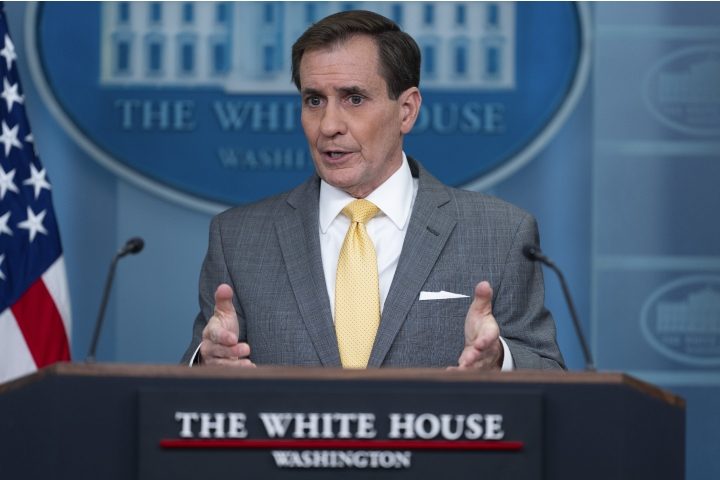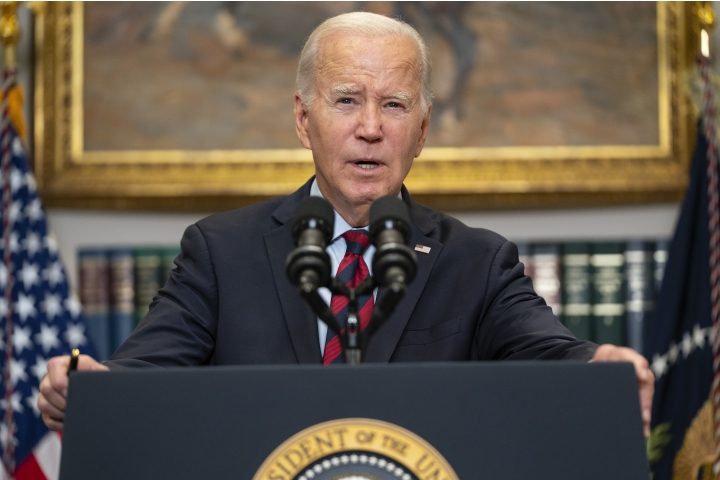
The flow of U.S. military aid to Kyiv has stopped, White House national security spokesman John Kirby admitted on January 11 amid a debate in Congress on whether to continue support for Ukraine in its conflict with Russia.
“We have issued the last drawdown package that we had funding to support, and that’s why it’s critical that Congress move on that national security supplemental request,” Kirby told reporters at a press briefing, acknowledging that “the assistance that [the U.S. had] provided has now ground to a halt.”
U.S. President Joe Biden authorized the last aid package worth $250 million in late December through the Presidential Drawdown Authority, which permits urgent deliveries of weapons to allies without congressional approval.
Biden has been asking Congress to vote for a $100 billion supplemental budget request he has introduced, of which more than $60 billion was scheduled for Ukraine. Republicans have blocked the measure, demanding that the White House and congressional Democrats agree to their plan of tightening security at the border with Mexico.
The director of the Office of Management and Budget, Shalanda Young, told the press in January that the drawdown authority “is not going to get big tranches of equipment into Ukraine,” describing the situation as “dire.”
Earlier in the month, Pentagon spokesman Major General Patrick Ryder cautioned that the army was running out of options “to replenish the stocks.”
While Biden has publicly pledged to support Kyiv for “as long as it takes,” some Republicans and the media have been questioning Washington’s existing strategy, given that Ukraine’s much-hyped counteroffensive has ended without considerable military gains.
Last year, Valeriy Zaluzhny, Ukraine’s top general, acknowledged that the conflict with Russia was “at a stalemate.”
Besides, EU officials are increasingly conceding that production and logistical problems are delaying arms deliveries to Ukraine.
“Europe doesn’t know how to fight wars,” Ukrainian Foreign Minister Dmitry Kuleba said in a recent interview. “Unfortunately, our friends spent too much time deliberating on how and when to ramp up their production of weapons and ammunition.”
On the other side of the Atlantic, during a visit to Kyiv on January 12, U.K. Prime Minister Rishi Sunak verified that his government is to supply Ukraine with £2.5 billion ($3.2 billion) in military assistance over the next fiscal year. This figure is to be the U.K.’s most significant yearly aid commitment since the start of Russia’s offensive in February 2022.
In a January 12 statement, 10 Downing Street confirmed the aid package, which will begin in April. This package comes amid increasing worries in Kyiv about faltering support from its backers in Washington and Brussels. Notably, the aid package is about £200 million ($254 million) larger than those that came over the previous two years and will provide Ukraine with long-range missiles, air defense, and artillery ammunition. About £200 million of the military aid will be spent on drones — the largest such contribution of state-of-the-art military drone hardware since the onset of Russia-Ukrainian conflict in February 2022.
Additionally, the package includes £18 million ($23 million) in humanitarian aid, as well as aid to Ukraine’s energy infrastructure and funding for online English language training.
Political infighting on either side of the Atlantic has undermined the Western financial assistance that has aided Ukraine in the conflict as divisions mount among some European and American lawmakers over botched efforts on the battlefield.
“I am here today with one message,” Sunak declared in an address from the Ukrainian capital. “The UK will not falter. We will stand with Ukraine in their darkest hours and in the better times to come.” He added in a post to social media after arriving in Kiev: “To all Ukrainians, Britain is with you — for as long as it takes.”
Furthermore, 10 Downing Street stated that the aid package would be the first step in what it called a “totemic” security agreement with Ukraine, which it said will morph into an “unshakeable hundred-year partnership” between both countries.
The bilateral accord laid out by Sunak’s government — the U.K.-Ukraine Agreement on Security Cooperation — entails an array of measures on U.K. security guarantees for Ukraine. The agreement also formalizes Britain’s “swift and sustained” defensive assistance for Ukraine “in the event that it is ever attacked by Russia again.”
“We recognize that their security is our security,” Sunak said.
The U.K.’s updated aid provision to Kyiv will likely return the focus to legislators in Europe and the United States, where Congress has declined to advance a $50 billion security package. As a consequence, the White House said on January 11 that its support for Ukraine has “ground to a halt.”
Responding to Sunak’s visit to Kyiv on January 12, former Russian President Dmitry Medvedev cautioned that Moscow would consider the open deployment of British troops to Ukraine as a “declaration of war.”
Sunak’s arrival in the Ukrainian capital was meant to “set out a major new package of support and reaffirm the close UK-Ukraine partnership,” his office announced in a statement. The security document is a follow-up to agreements inked by G7 and NATO members last year, it pointed out. The statement did not include any plans for a British military mobilization to Ukraine.
“[The deal] formalizes a range of support the UK has been and will continue to provide for Ukraine’s security, including intelligence sharing, cyber security, medical and military training, and defense industrial cooperation,” 10 Downing Street said.
Medvedev, who presently acts as deputy chair of the Russian Security Council, gave his warning in a social-media post.
The U.K. has been a major supporter of Kyiv’s military actions against Russia. Former Prime Minister Boris Johnson reportedly contributed heavily to undermining a nascent truce that Kyiv and Moscow had negotiated in the early months of 2022, although he has dismissed claims that he ordered the Kyiv government to keep fighting.
On various occasions, Moscow has accused the U.K. of helping Ukraine stage attacks against Russia, particularly in the Black Sea. The Russian Defense Ministry has claimed that British military personnel already have a presence in Ukraine.
On January 11, Ukraine’s National Agency on Corruption Prevention (NACP) pointed out a rise in the number of potential recruits deemed ineligible for military service by conscription offices since the outbreak of conflict in early 2022, according to data from recruitment centers throughout Ukraine.
Ukrainian officials suspect that people attempting to dodge the draft are bribing medical workers, instead of actually being unfit for military service.
Draft officials have been embattled in some high-profile corruption scandals, prompting President Volodymyr Zelensky to sack all regional heads last year. This move, as per the Ukrainian military, dented the country’s mobilization efforts.
The agency’s data revealed that the percentage of draftees rejected by draft commissions rose from three percent in 2021 to eight percent in 2022, and seven percent in the first nine months of 2023. The “partially eligible” category increased from 20 percent in 2021 and 2022 to 27 percent last year.
Based on the current law, “partially eligible” draftees should not be given physically challenging jobs, precluding them from riskier roles and reducing their usefulness in the country’s military. A contentious draft law on mobilization, which was submitted to the Ukrainian parliament last month, seeks to do away with the category altogether.
The newly released statistics also depict discrepancies in the invalidation rates among different parts of Ukraine. Kyiv and Poltava Region reported “significantly” higher proportions of rejected candidates versus the national average, the NACP noted. In 2023, there was a double-digit difference in the percentages recorded in these regions compared to the average.
“This data may indicate the presence of corruption risks” in the operation of recruitment centers, the agency cautioned.
Last week, Ukrainian Interior Minister Igor Klimenko disclosed that more than 9,000 active criminal proceedings had been initiated against alleged draft dodgers. Over the past year alone, nearly 11,000 men have been arrested at the border while trying to escape Ukraine, the country’s border guard spokesman Andrey Demchenko previously divulged.
Kyiv is struggling to replenish the troops it lost in 2023 in an attempt to retake land from Russian forces. The new mobilization law, if passed, would enable the military to rely on manpower reserves that are currently less readily available, such as people with medical conditions, women, and citizens who escaped abroad as refugees.
As per recent estimates by Russian Defense Minister Sergey Shoigu, Kyiv’s losses last year exceeded 215,000 troops and 28,000 units of heavy weaponry.




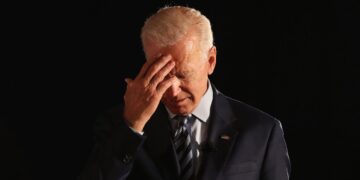
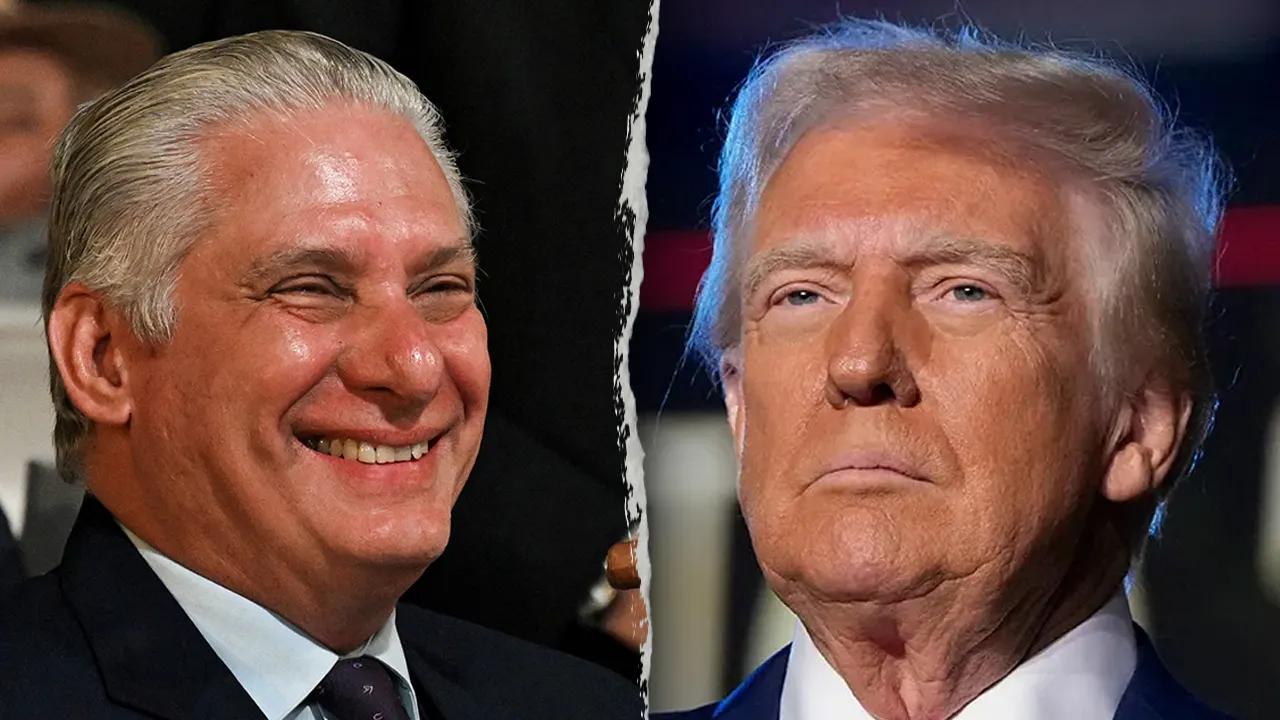




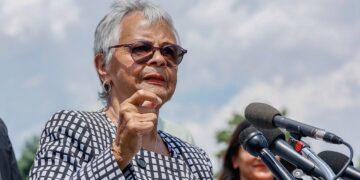






















 Reaction & Commentary
Reaction & Commentary




